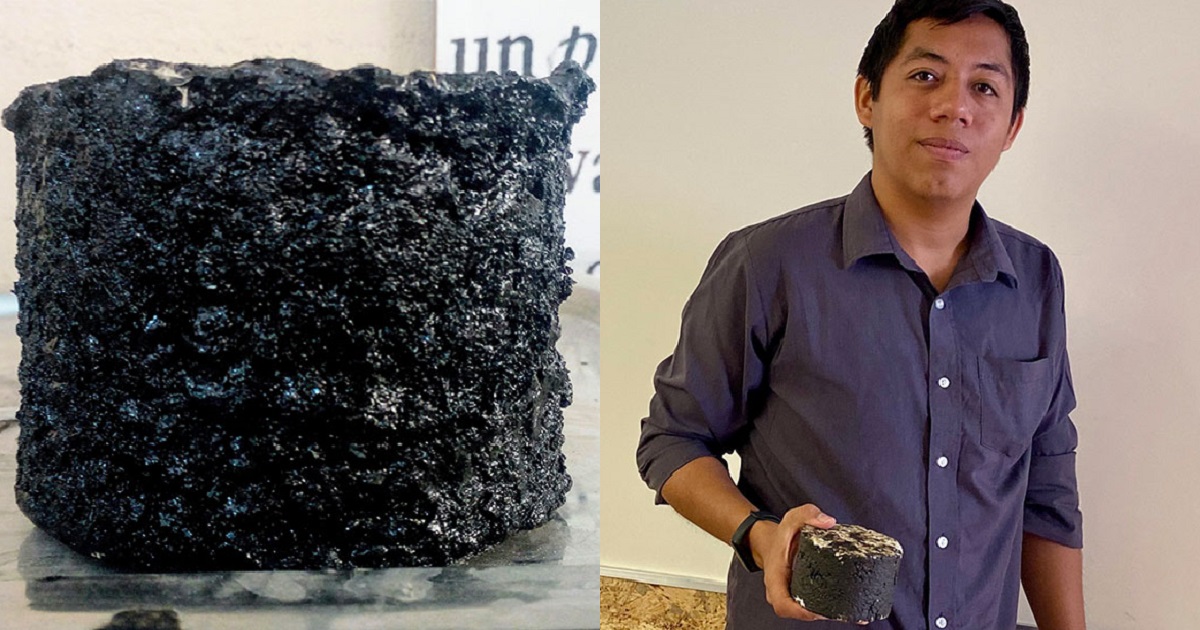
A Mexican university student made a new rubber pavement from recycled tires that self-repairs every time it rains.
Israel Antonio Briseño Carmona is a civil engineering student at the Autonomous University of Coahuila in Torreón, Mexico. The genius young man created the new self-regenerating pavement as a way to address the issue of damaged pavement and potholes in places where it regularly rains, as is the case in several Mexican cities.
The new invention can save billions of dollars in terms of infrastructure costs for governments and construction companies across the globe.
The invention has earned Briseño the top spot as a 2019 James Dyson Award winner for Mexico. Other winners of the Dyson Award included an electric tricycle for carrying cargo (New Zealand), a compostable replacement for plastic (United Kingdom), and a self-sanitizing door handle (China).
Carmona devised the idea back in 2018 after he first experimented with a formula using asphalt before testing a formula using recycled rubber from tires, which would make the roads both cheaper and more sustainable.
The young man says he was inspired by the invention of concrete which regenerates itself using bacteria, and by observing that potholes formed after rain.
In April 2019, Carmona patented his new invention under the name Paflec.
Rainwater could allow the rubber and various additives to become a putty-like substance when it comes into contact with water, according to the James Dyson Award website.
Carmona wishes to work with a construction company from whom he could get a 5% commission on whatever the total cost would amount to, but he's not yet formed such a partnership with any companies. A coordination is still necessary for the young inventor to certify and tender such a project.
#Ciencia Mexicano crea pavimento que se repara con agua. Israel Antonio Briseño, egresado de la Universidad Autónoma de Coahuila, ganó el concurso James Dyson-México. Hecho a base de neumáticos y con resultados satisfactorios todavía no está listo para su implementación. pic.twitter.com/6M8epm7lFC
— Enfoque Informativo (@enfoqueinforma) October 22, 2019
To get over this hurdle, the young man devised a three-step plan which would allow him to turn his idea into reality.
First, he's planning to meet with an engineer who could iron out any problems with the idea while simultaneously building a short strip of road which could be tested to make sure that it works as planned.
Next, Carmona will seek certification for the new system through the national construction standardization organization ONNCCE, that he hopes can approve the formula for use in Mexico.
Finally, the young inventor hopes to gain the approval of national authorities so that he could authorize any contracts using the self-generating pavement.












COMMENTS